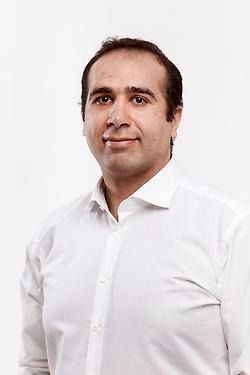A step towards more efficient metal casting
On Friday the 23rd of September, Mostafa Payandeh defended his doctoral thesis on casting of aluminium alloys. The results of his research may contribute to the development of more time and cost effective casting processes for components used by for example the automotive industry and the electronics industry.
%20Mostafa_1.jpg)
Metal casting is a well-established method for manufacturing components for different applications. Currently, the casting process is under intensive development with a number of different technologies evolving. One such technology is the so-called semi-solid metal casting (SSM casting).
SSM casting allows for casting of metal components with complex shapes in a single operation. This means advantages in terms of both time and cost reductions. Still, this technology has not been implemented in any greater scale within the industry.
“The reason for this is mainly a lack of profound knowledge of how the process actually works. For the industry to start using new casting technologies they need to know how different process parameters influence the properties of the final products,” says Mostafa Payandeh.
He has focused his work on one specific SSM casting method, which is called the RheoMetalTM process. The method was developed by an earlier Ph.D. student, Haiping Cao, and Magnus Wessén, Associate Professor, at the School of Engineering, Jönköping University in the early 2000s.
“I have developed a methodology, or guidelines, that foundries, process engineers and designers can use to find the right process parameters for specific material characteristics. I have shown for example how a number of selected parameters influence the material characteristics and the properties of the final component,” he explains.
The research project has been carried out in close cooperation with the industry. This means that the direction of the research has been set based on their needs. The research results are specifically applicable for the telecom industry.
“The casting process contains a great number of parameters, which influence the properties of the final product. I have focused on parameters that can be easily changed, e.g. temperature and filling speed. If it is too complicated and expensive to make changes in the manufacturing processes, industry will not implement the new methods,” says Mostafa Payandeh.
The results of his research will be the basis of continued research within this area. Already now the School of Engineering has two new Ph.D. students whose research is based on Mostafa’s results. One of them will investigate the corrosion properties, and the other will study fatigue properties – two areas which Mostafa’s research did not cover.
“My results are an important first step to make the RheoMetalTM process useable for the industry,” concludes Mostafa Payandeh.
The title of Mostafa Payandehs thesis is "Rheocasting of aluminium alloys: Process and components characteristics".
